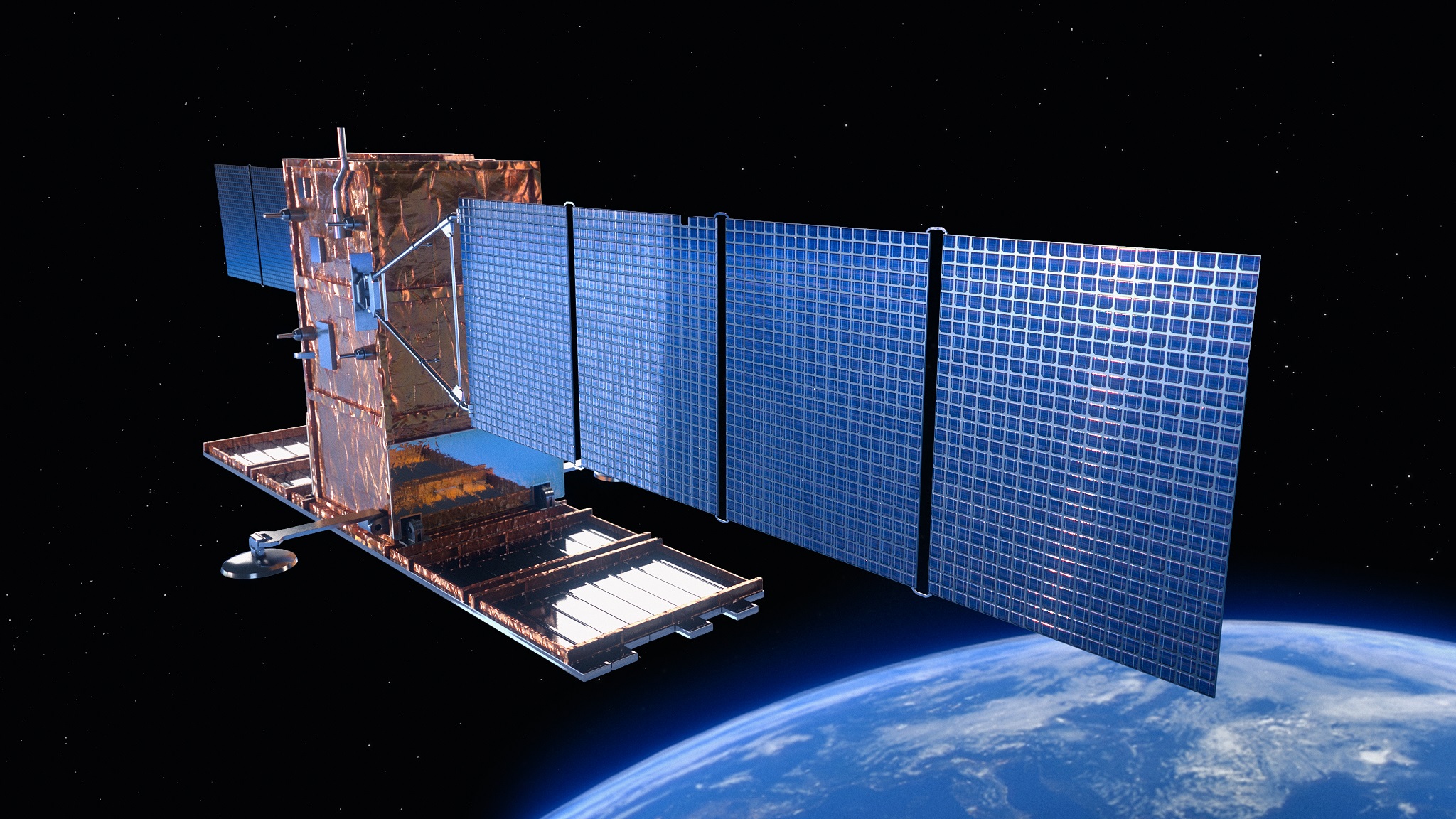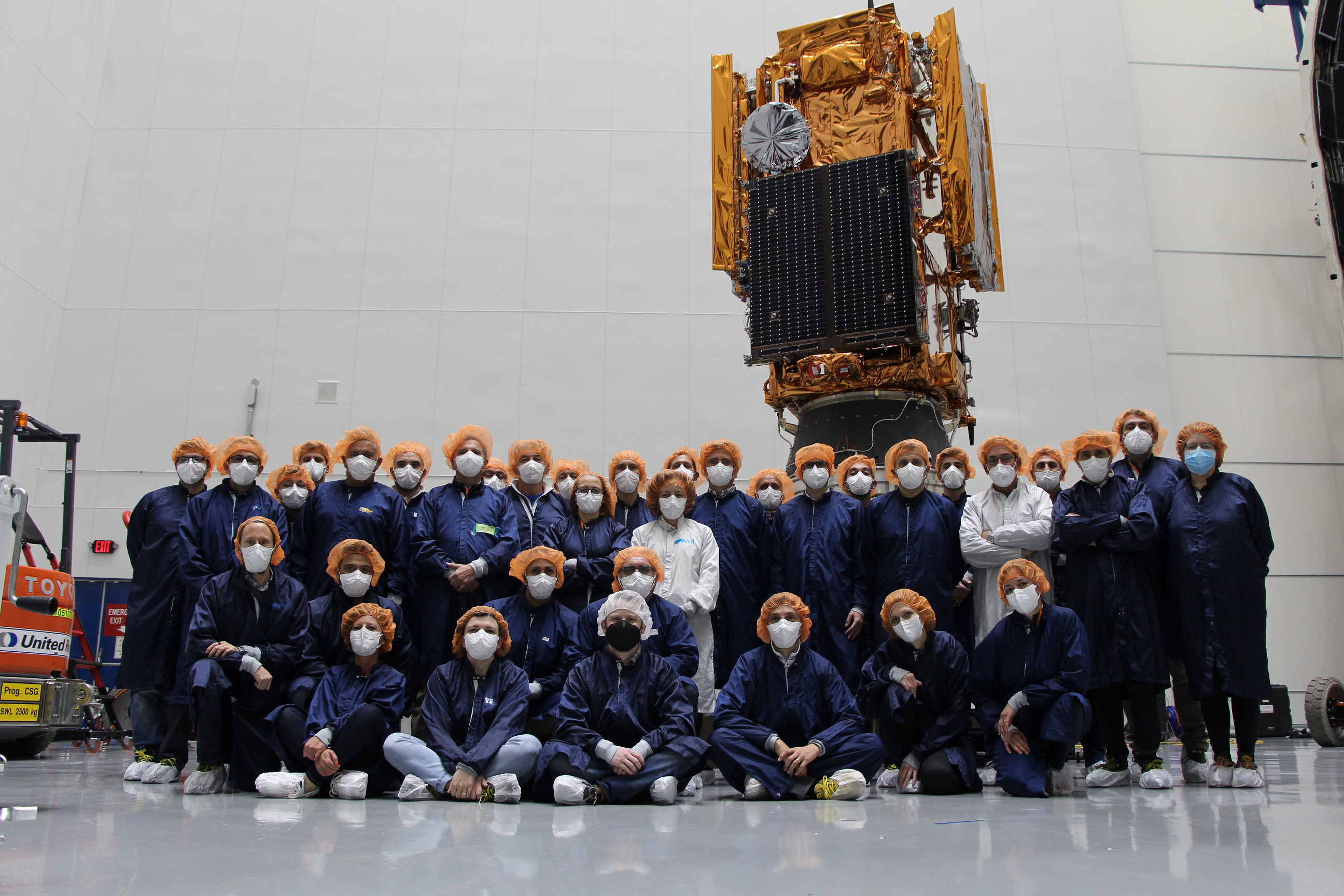The dual-use Italian Constellation at the Service of Security and Sustainability
Rome, 1 February 2022 – The second satellite of the COSMO-SkyMed Second Generation (CSG) constellation, built by Thales Alenia Space, a joint venture between Thales (67%) and Leonardo (33%) and operated in orbit by Telespazio, a joint venture between Leonardo (67%) and Thales (33%), was successfully launched today at 00.11 CET from Cape Canaveral Air Force Station, Florida (USA), on board of a SpaceX Falcon 9 rocket.
Fifteen minutes after the separation from its launcher, the satellite was acquired and controlled by Telespazio’s Space Centre based in Fucino.

The second-generation COSMO-SkyMed (COSMO-SkyMed – COnstellation of Satellites for the Mediterranean basin Observation) is a constellation financed by the Italian Space Agency (ASI) with funds allocated by the Italian Ministry of University and Research alongside the Italian Ministry of Defence. It will guarantee the operational continuity of SAR (Synthetic-Aperture Radar) Earth observation services currently provided by the four first-generation COSMO-SkyMed (CSK) satellites launched into orbit between 2007 and 2010 and still operational.

“The success of this launch represents a key milestone for the entire COSMO-Skymed Second Generation constellation. In its final configuration of 4 satellites, it will ensure a real leap in terms of technology and performance, consolidating the worldwide leadership of Thales Alenia Space in space Radar Earth Observation infrastructure. Today, the second generation aims to define the performance standard for all radar observation systems from Space. COSMO-SkyMed is an industrial success story and demonstrates our ability to deal with dual use programs, meaning collaborating at the same time with different customers like the Italian Space Agency and the Italian Defense Ministry. Keeping the entire constellation COSMO-SkyMed at the forefront of the future, is essential to preserve the primacy of the entire industrial supply chain in a space market in continuous evolution. It will also allow the ensure the continuity of data serving both security and sustainability needs”,
commented Massimo Comparini, Deputy CEO and SEVP Exploration, Observation and Navigation at Thales Alenia Space.
“We are proud as the Leonardo Group and as Telespazio to be among the creators of the development and affirmation of the most advanced satellite radar constellation in the world COSMO-SkyMed, with its highly innovative operating capabilities, has been contributing since 2007 to the continuous monitoring of the Earth’s surface, responding to the needs related to security and management of natural events providing a contribution of primary importance to its users, both civil and defense”,
said Luigi Pasquali, Leonardo’s Space Activities Coordinator and CEO of Telespazio.

With the positioning in orbit of the second satellite, which uses the latest technologies and engineering solutions, CSG will progressively replace the first-generation system, increasing system performance, and significantly extending the range of applications offered, in view of the final configuration of four satellites. The entire system, including the ground segment, will set the performance standard for all radar observation systems from space, in terms of accuracy, image quality and flexible user services.
Over the years, the data obtained by the COSMO-SkyMed system have provided fundamental information in monitoring the environment and the territory, for safety or for emergency management. As a participating mission in the European Copernicus program, COSMO-SkyMed images are of great importance in the European Commission’s Emergency Mapping Rapid Mapping service, which makes satellite maps of areas affected by a natural emergency or humanitarian crisis available in a few hours, such as the La Palma volcanic eruption, for which COSMO-SkyMed provided data and maps of lava movements. This service is involving an international consortium led by e-GEOS (Telespazio 80% / ASI 20%). The work carried out on the island has shown one of the most innovative features of the second generation COSMO-SkyMed satellites, the ability to acquire data with two – in some ways, four – different polarizations, with important benefits in terms of rapid response and efficiency in the use of the satellite resource. In the past, the same result was obtained with multiple passes of the satellite.

Industry role
For COSMO-SkyMed, Italian industry plays a leading role, with Leonardo and its joint ventures Thales Alenia Space and Telespazio, together with a significant number of small and medium-sized enterprises.
Thales Alenia Space is in charge of the entire Second-Generation COSMO-SkyMed programme, including satellite design and development, as well as the design, integration and commissioning of the end-to-end system. Telespazio is responsible for the design and development of the CSG ground segment and the provision of Integrated Logistics and Operations Services (ILS and OPS).
Telespazio’s Fucino-based Space Centre, a joint venture between Leonardo (67%) and Thales (33%), will manage the satellite’s Launch and Early Orbit Phase (LEOP), from where the first telemetry data sent by the satellite will be acquired.
Leonardo contributes to the programme by providing attitude control equipment, as well as state-of-the-art units for the management and distribution of electrical power.
COSMO-SkyMed data is marketed worldwide by e-GEOS, a joint venture between Telespazio (80%) and ASI (20%) which develops applications and provides operational services based on the same data.
About Thales Alenia Space
Drawing on over 40 years of experience and a unique combination of skills, expertise and cultures, Thales Alenia Space delivers cost-effective solutions for telecommunications, navigation, Earth observation, environmental management, exploration, science and orbital infrastructures. Governments and private industry alike count on Thales Alenia Space to design satellite-based systems that provide anytime, anywhere connections and positioning, monitor our planet, enhance management of its resources, and explore our Solar System and beyond. Thales Alenia Space sees space as a new horizon, helping to build a better, more sustainable life on Earth. A joint venture between Thales (67%) and Leonardo (33%), Thales Alenia Space also teams up with Telespazio to form the parent companies’ Space Alliance, which offers a complete range of services. Thales Alenia Space posted consolidated revenues of approximately 1.850 billion euros in 2020 and has around 7,700 employees in 10 countries with 17 sites in Europe and a plant in the US.
About the Space Alliance
The Space Alliance, founded in 2005, is a strategic partnership between Leonardo and Thales, the major industrial groups in the aerospace industry in Italy and France. It includes two joint ventures: Telespazio (Leonardo 67%, Thales 33%) and Thales Alenia Space (Thales 67%, Leonardo 33%). The complementary capabilities of Thales Alenia Space in satellite systems and Telespazio in the services associated with them provides the Space Alliance all the assets needed to respond positively and effectively to the needs of the market, which today are increasingly focused on applications related to space technologies. In this scenario, Telespazio and Thales Alenia Space have a unique offering of its kind, ranging from the field of communications to navigation, as well as scientific research and observation, which enables both companies to consolidate their position in the aerospace and defense and security markets.
About Telespazio
Telespazio is one of the world’s main operators in the space services sector. These include the design and development of space systems, the management of satellite launch and in-orbit control services, Earth observation services, integrated communications, satellite navigation and localisation, and scientific programmes. Telespazio plays a leading role in its relevant markets by leveraging the technological expertise it has acquired through 60 years of activity, through developing its own infrastructures, and through its participation in space programmes such as Galileo, EGNOS, Copernicus and COSMO-SkyMed. In 2020, Telespazio generated sales of EUR 540 million while employing 3,000 people in nine countries.
Courtesy of Thales Alenia Space and Telespazio


 Copyright 2023 All rights reserved.
Copyright 2023 All rights reserved.